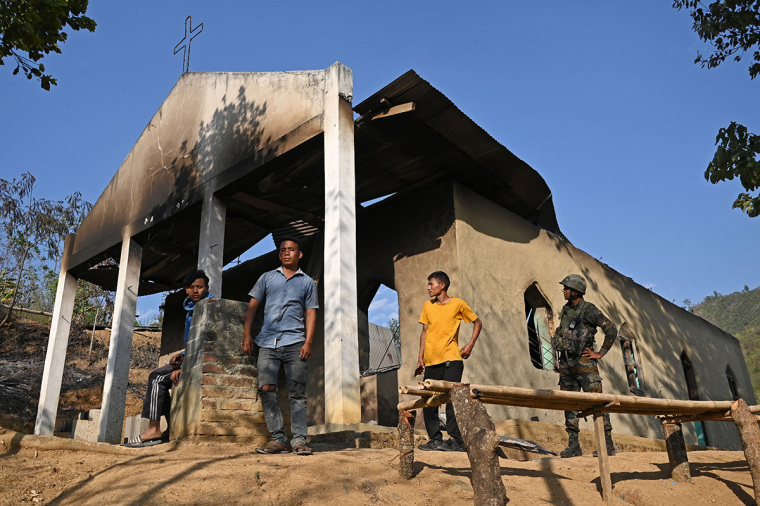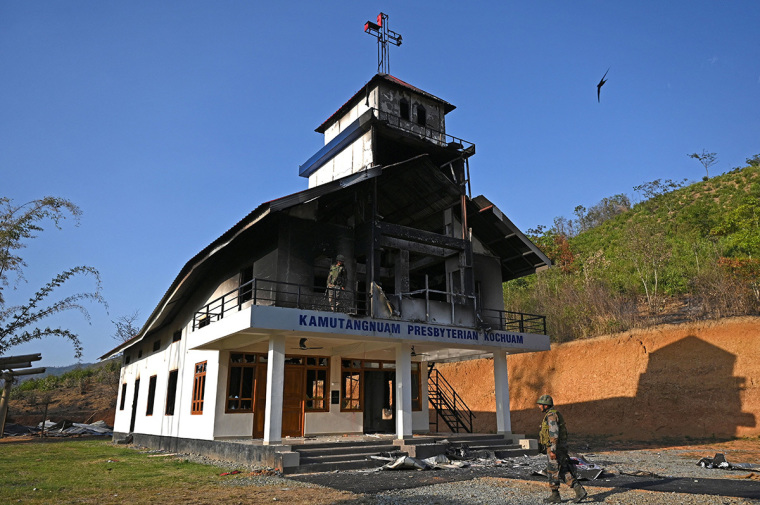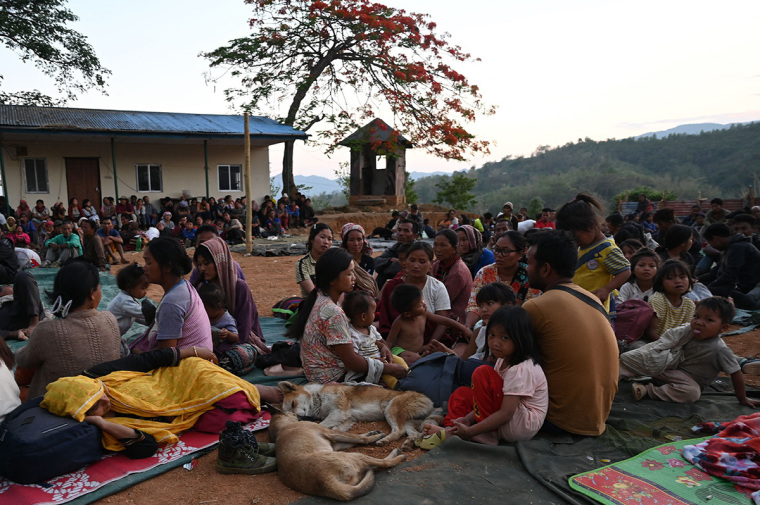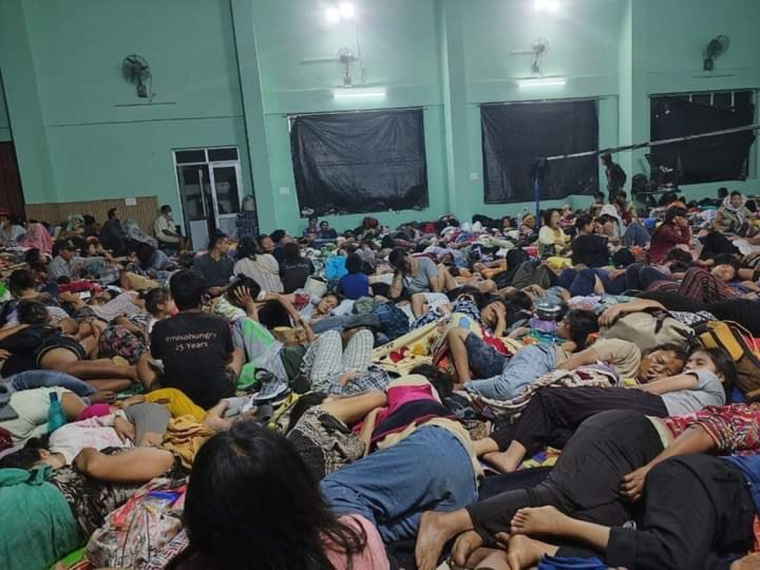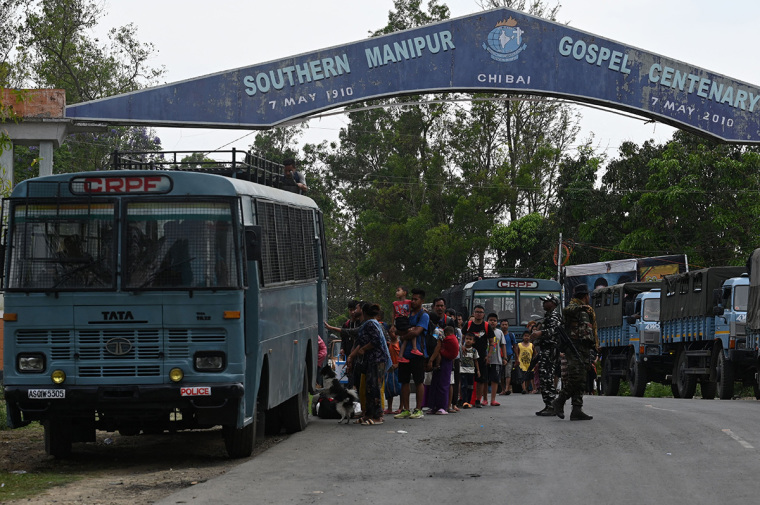India’s Manipur remains tense weeks after 400 churches were burned, 60 Christians killed
The northeastern Indian state of Manipur remains in a tense state of unease weeks after a devastating spate of violence led to the deaths of at least 73 individuals, most of them Christians, and the burning, damage or destruction of nearly 400 churches.
Kuldeep Singh, a security advisor to the Manipur Government, told reporters Saturday that 488 weapons and about 6,800 rounds of ammunition looted amid the strife had been retrieved, Ukhrul Times reported.
The Assam Rifles additionally recovered 22 pounds (10 kg) of explosives and 2,000 BIPL detonators.
The largely Christian tribals belonging to the Kuki-Zo communities, who reside on the hills of Churachandpur district, say two groups of the predominantly Hindu Meitei community — Arambai Tengoll, also known as “black-shirts,” and Meitei Leepun — were behind the violence.
Meiteis are primarily settled in the Imphal Valley.
The violence, which began on May 3, primarily engulfed the Imphal Valley and Churachandpur, causing at least four days of turmoil. The region remains fraught with tension as authorities fear possible reprisal attacks due to the significant accumulation of weapons within both involved communities.
The Indian Express earlier reported that over 1,000 weapons and 10,000 rounds of ammunition were stolen from the Manipur Police Training College, two local police stations, and an IRB battalion camp in Imphal by members of the Meitei ethnic group. The report also noted, without stating specific figures, that police stations in Churachandpur were attacked and looted by the Kuki community.
During this period of hostility, the escalating violence has not only claimed a minimum of 73 lives, out of which about 64 were Christian tribals, but also left 200 people injured. More than 1,700 residences suffered damage, complete destruction or saw their homes set ablaze. The turmoil has forced about 50,000 individuals to abandon their homes, of whom roughly 35,000 belong to Christian tribal communities.
The houses of Meiteis in the Christian tribal-majority Churachandpur have also been damaged or destroyed.
A local source informed The Christian Post that the violence and ensuing tensions have caused a complete exodus of tribal residents from the Imphal Valley. Similarly, all Meiteis previously residing or working in Churachandpur, including government and police officials, have fled the area.
According to the source, Christian organizations in the area have recorded the burning, damage, or destruction of 397 churches and six Christian institutions amid the wave of violence. Significantly, these churches primarily served as places of worship for Meitei Christians. It is alleged that these structures were primarily targeted and destroyed by Meitei Hindus.
Archbishop Dominic Lumon of Imphal, whose jurisdiction covers the entirety of Manipur, has launched an appeal for funds to assist those impacted by the violence.
He warns of a “general sense of hopelessness and desperation” throughout the region, acknowledging that all communities, regardless of their affiliation, are affected by the ongoing strife.
Fr. Varghese Velikakam, Vicar General of the Diocese of Imphal, criticized local police for their failure to prevent the attacks and questioned the lack of guards after attempted assaults.
Videos of the violence show police looking on or participating in the violence on tribal people.
Despite the apparent targeted nature of these attacks, Fr. Varghese advised the Church to act cautiously, maintain neutrality and promote peace and unity.
Northeast India has had long-standing ethnic tensions. In Manipur, the Meiteis and the tribal communities have long been at odds over issues such as land ownership and affirmative action policies.
After winning the 2017 state election, the Hindu nationalist Bharatiya Janata Party, led by Chief Minister N. Biren Singh, reclassified the majority of tribal settlements as reserved forests, effectively treating them as illegal immigrants. This move, along with the Meiteis’ ongoing quest for recognition as a tribal group, has significantly exacerbated tensions between the two groups.
Manipur’s highest court’s recent instruction to the government last month to consider the Meiteis’ demand for legal recognition as a tribal group has further stirred anxiety among the tribal communities. The recent outbreak of violence was triggered when a tribal student group protested against this demand.
The Hindu Meiteis and Christian tribals each constitute approximately 42% of the state’s population. Despite this balance, the Meiteis have historically held dominance in the state’s political and economic spheres.
Critics also point to Chief Minister Singh’s past orders to demolish churches in Imphal, under the allegation of illegal construction on government-owned land, as a significant strain on inter-community relations.
The widespread violence and targeted attacks against the Christian community have raised concerns about the potential escalation of religious conflict in the region.
As these communities grapple with the aftermath, Manipur remains under a dark cloud of uncertainty, its future dictated by both the government’s ability to quell tensions and the communities’ willingness to engage in peace-building efforts.










